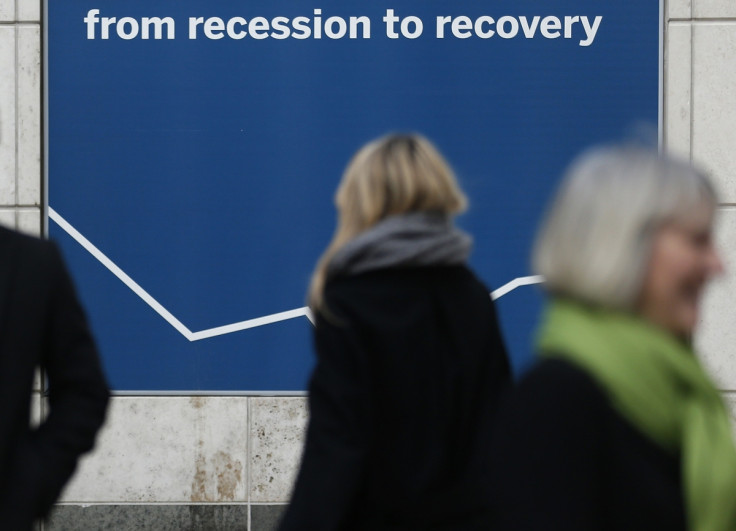UK Recovery: OECD Suggests GDP Growth Firming

Growth in the UK economy is firming as the recovery takes shape, according to the Organisation for Economic Co-operation and Development.
The UK is at the start of its recovery phase from the post-financial crisis slump, with GDP growth accelerating across the first three quarters of 2013 from 0.3% to 0.8%, though there are indications that this slowed in the final three months.
In its composite leading indicators (CLI) report, which uses the likes of business confidence surveys and new orders data to give a picture of where global economies will be in six to nine months, the OECD also said growth is firming in Japan, the United States and Germany.
For the eurozone as a whole, CLIs suggested a positive trend for the currency bloc's economy in 2014 as it finally begins a slow recovery from the sovereign debt, banking and fiscal crises that have plagued its members states since 2010.
Though growth is returning to the UK's key trading allies, much of its domestic recovery is being driven by household consumption and a resurgent housing market.
The Office for Budget Responsibility (OBR), the Treasury's fiscal watchdog, predicts net trade to be flat over the coming years. Its prediction of 2.4% growth in 2014 is reliant on household spending, despite the UK's real terms decline in incomes as prices rise faster than wages.
UK house prices soared by 5.5% across 2013, said the Office for National Statistics (ONS), as mortgage easing schemes such as Help to Buy revive housing market demand.
OBR forecasts say UK wages will not pick up meaningfully until 2015, but there are hopes that a faster than expected recovery across 2014 will lead to higher pay too.
There was a sudden slump in construction sector output and flat growth in manufacturing and production between October and November.
The ONS said construction output dropped 4% across the month, driven by falling new work in the private commercial sub-sector.
There was zero growth in production and manufacturing. The ONS also revised down its October data for all three sectors, which combined account for more than a fifth of UK GDP.
"Despite the wave of optimism on the UK economy, the evidence suggests that the economy slowed in the fourth quarter of 2013," said Azad Zangana, European economist at Schroders.
"At this stage, we believe the slowdown is in reaction to the weak demand in the previous quarter and the subsequent build-up of inventories. The slowdown in activity will help reduce those excess inventories; however, we only expect to see a slight acceleration in growth in the first quarter of this year."
Official GDP figures are yet to be released for the final quarter of 2013. Research by the National Institute for Economic and Social Research (NIESR) thinktank shows GDP growing at a rate of 0.7% in the fourth quarter.
© Copyright IBTimes 2024. All rights reserved.






